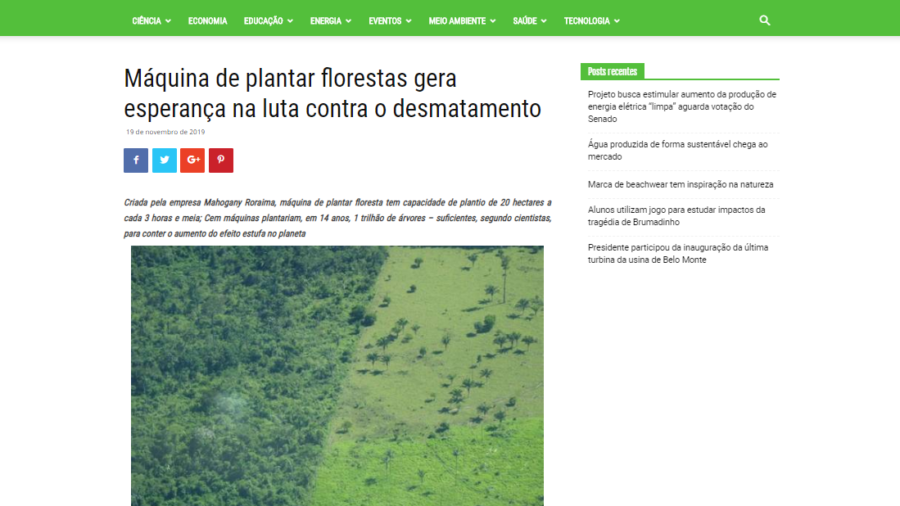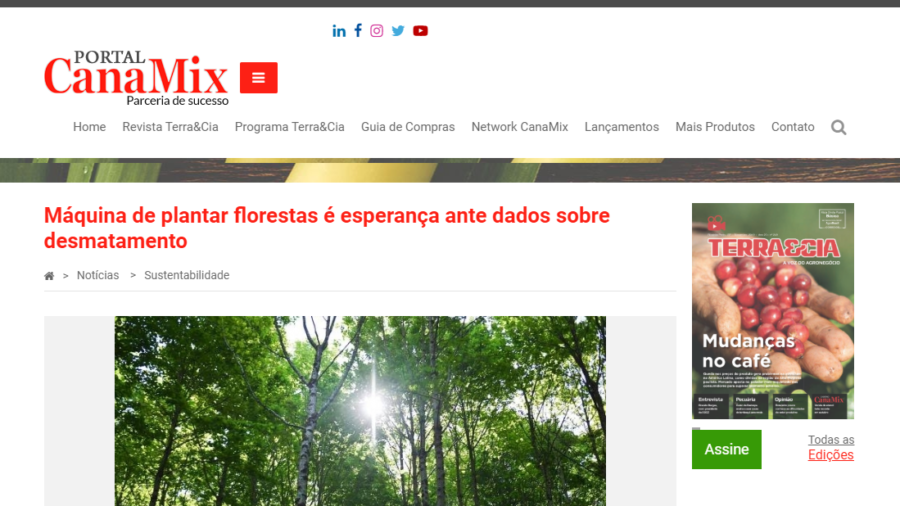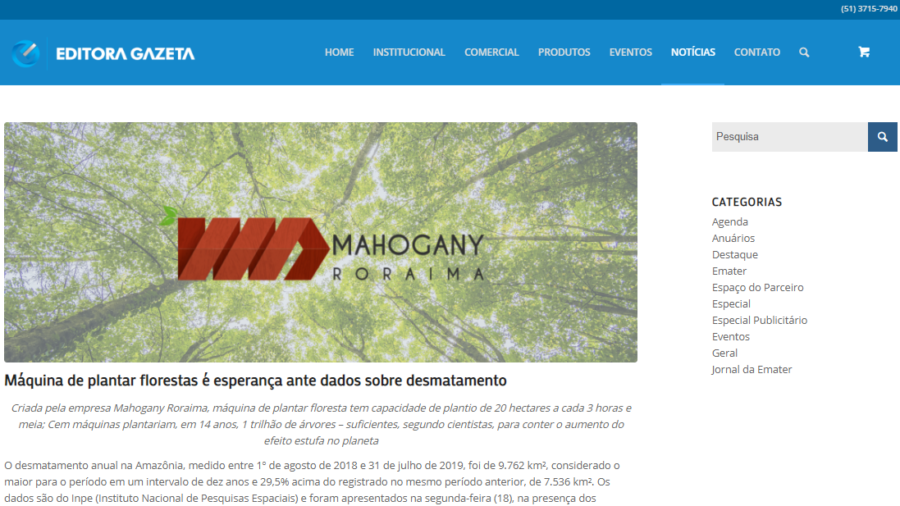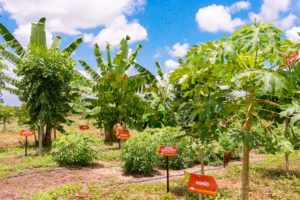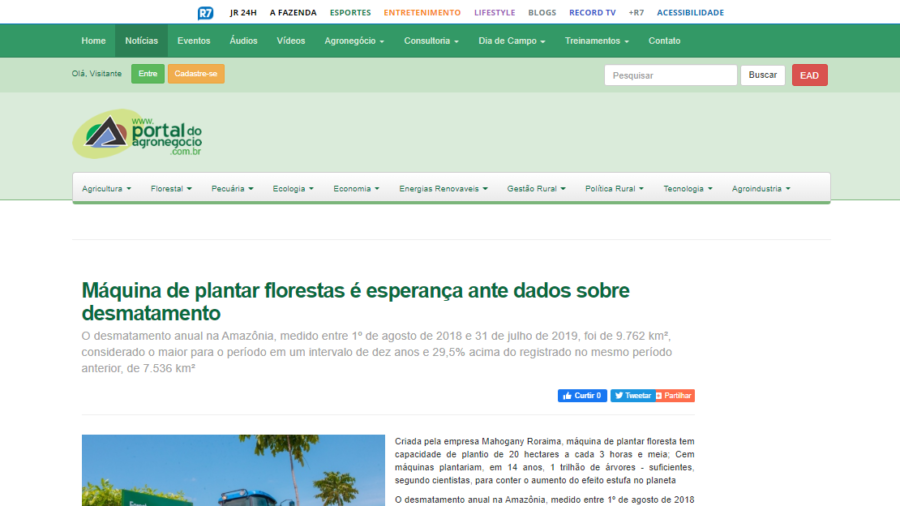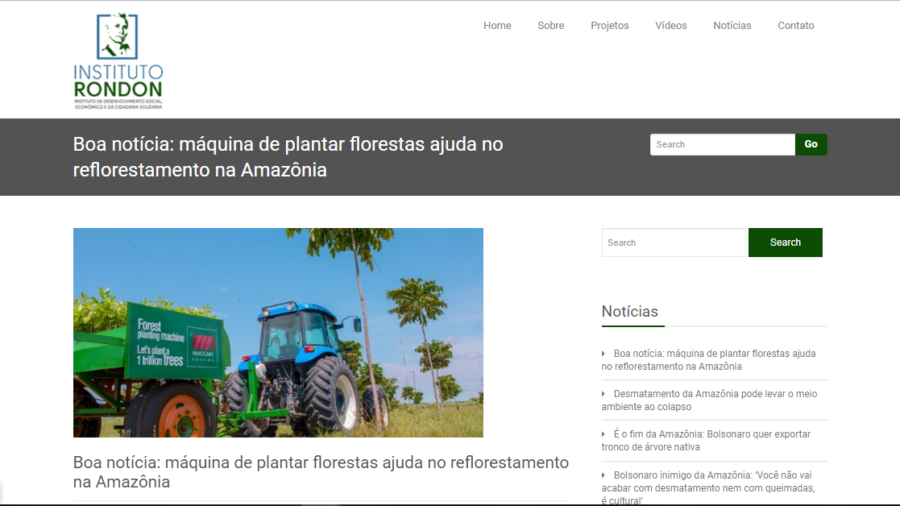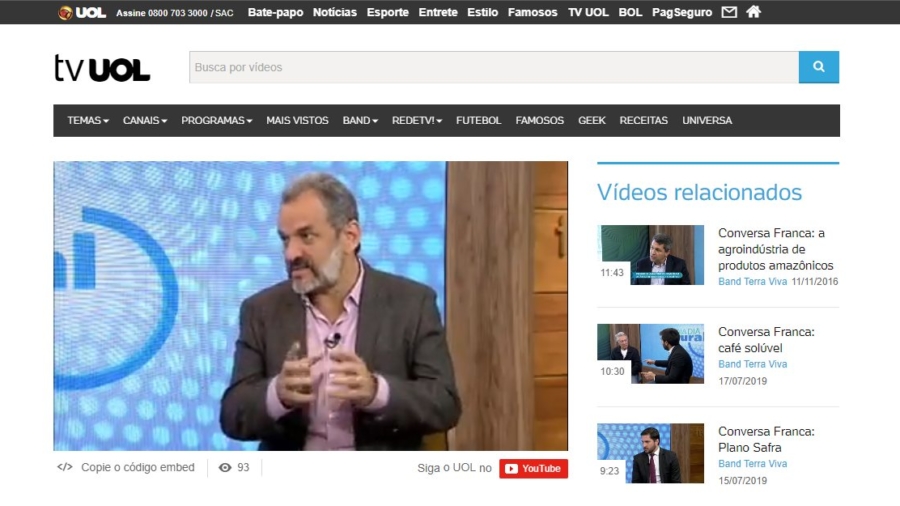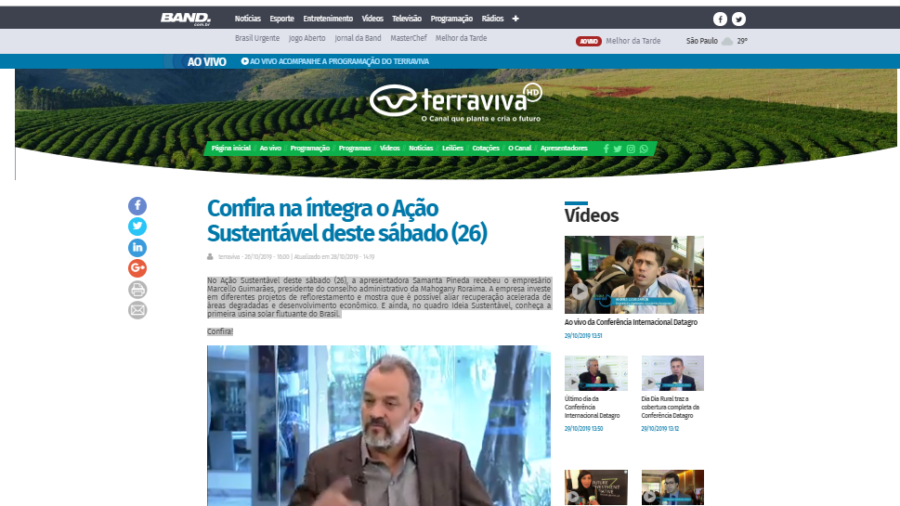Created by the company Mahogany Roraima, a forest planting machine has a planting capacity of 20 hectares every 3 ½ hours; One hundred machines would plant 1 trillion trees in 14 years – enough, scientists say, to stem the increase in the world’s greenhouse effect.

Annual deforestation in the Amazon, measured between August 1, 2018 and July 31, 2019, was 9,762 km², considered the largest for the period over a ten-year period and 29.5% higher than in the same period last year. of 7,536 km².
The data are from INPE (National Institute for Space Research) and were presented on Monday (18), in the presence of ministers Ricardo Salles (Environment) and Marcos Pontes (Science) and the interim director at the institute, Darcton Damião.
In order to accelerate reforestation in these devastated areas, Brazilian company Mahogany Roraima, the world’s fourth largest African mahogany producer, has created a 100% automatic machine capable of planting seedlings of various species at a speed of 13 km / h – or 20 hectares every 3 and a half hours.
And that speed can still improve. “We are working to improve its performance”, informs Marcello Guimarães, president of the company’s Board of Directors.
According to him, thanks to the machine, Mahogany is able to plant 16,000 trees in just 3.5 hours, with only three operators. “With ten machines we could plant 200 hectares of forest every 3 ½ hours. In a 24-hour cycle, we could plant 1,200 hectares per day or 438,000 hectares per year using just ten machines. “, Calculates Guimarães.
With 100 machines, then, in just 14 years, it would be possible to plant 1 trillion trees, which scientists say would be enough to contain the problem of greenhouse gas emissions on the planet.
“Today, the largest forest plantations in the world total an average of 42 million trees per year. At this rate, it would take 23,000 years to reach the number of plantations needed ”, exemplifies the businessman.
According to him, the only difficulty of mass planting – large-scale seedling production – could be solved by setting up nurseries in several states at the same time, mixing production into 50% native species and 50% exotic
“It would help solve the problem of felling native trees in the future, because we would be planting species that can be cut as well. The natives would remain in place forming the new forests, and the exotic, years after planting, could be cut down for the timber industry. This would solve two problems: the environmental one, which requires urgency to plant forests, and the illegal logging ”, he concludes.
See the original article (in portuguese) clicking here.

